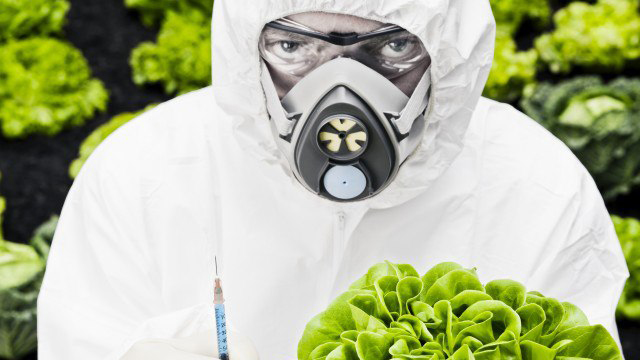valley ranch
Garden Master
- Joined
- Dec 22, 2014
- Messages
- 5,742
- Reaction score
- 5,732
- Points
- 367
Andrew Osborn in Brussels
Tuesday 9 September 2003 21.41 EDT
Italy wins Monsanto ban case
Italy is in the EU, Brussels makes agriculture descisions for the EU
Italy won the right yesterday to impose an emergency ban on genetically modified food products when Europe's highest court waded into a bitter dispute between Rome and the US biotechnology giant Monsanto.
But Italy's victory was not clear cut and could be short-lived. The European court of justice said that Rome would have to provide "detailed" evidence that GM products posed a risk to human health before any emergency ban was imposed.
The court also warned that it could not rely on hypothetical evidence or supposition.
Products containing minute traces of GM material could not be automatically banned, the court ruled.
The matter will now be referred back to the Italian courts which will have to decide whether or not the Italian government had been justified in 2000 in banning several varieties of GM maize that were sold elsewhere in the EU.
Both the Italian government and Monsanto claimed victory yesterday, but anti-GM campaigners stressed that the main thing was that the Italian ban would remain in place.
Geert Ritsema, GMO campaigner at FoE Europe, said: "There is huge scepticism in Italy about GM technology. And whatever Monsanto may say, this doesn't mean that these products are allowed or that the ban is lifted."
The case centres upon EU rules on the safety of genetically modified products, which are about to be replaced. FoEE had accused Monsanto of trying to exploit a legal loophole to win product approval.
"What they are trying to do is get access to the market for their products using a concept which has already been rejected by European lawmakers. It's a lost cause," said Mr Ritsema.
Monsanto, however, said it was confident of victory. A spokesman said: "It's a positive outcome for us. We anticipate that the [Italian] court will follow it and the position [ban] will be revoked."
The case is just one of several different legal battles being fought over GM technology. Earlier this month the European commission blocked the first attempt by an EU region to turn itself into a statutory GM-free zone.
Tuesday 9 September 2003 21.41 EDT
Italy wins Monsanto ban case
Italy is in the EU, Brussels makes agriculture descisions for the EU
Italy won the right yesterday to impose an emergency ban on genetically modified food products when Europe's highest court waded into a bitter dispute between Rome and the US biotechnology giant Monsanto.
But Italy's victory was not clear cut and could be short-lived. The European court of justice said that Rome would have to provide "detailed" evidence that GM products posed a risk to human health before any emergency ban was imposed.
The court also warned that it could not rely on hypothetical evidence or supposition.
Products containing minute traces of GM material could not be automatically banned, the court ruled.
The matter will now be referred back to the Italian courts which will have to decide whether or not the Italian government had been justified in 2000 in banning several varieties of GM maize that were sold elsewhere in the EU.
Both the Italian government and Monsanto claimed victory yesterday, but anti-GM campaigners stressed that the main thing was that the Italian ban would remain in place.
Geert Ritsema, GMO campaigner at FoE Europe, said: "There is huge scepticism in Italy about GM technology. And whatever Monsanto may say, this doesn't mean that these products are allowed or that the ban is lifted."
The case centres upon EU rules on the safety of genetically modified products, which are about to be replaced. FoEE had accused Monsanto of trying to exploit a legal loophole to win product approval.
"What they are trying to do is get access to the market for their products using a concept which has already been rejected by European lawmakers. It's a lost cause," said Mr Ritsema.
Monsanto, however, said it was confident of victory. A spokesman said: "It's a positive outcome for us. We anticipate that the [Italian] court will follow it and the position [ban] will be revoked."
The case is just one of several different legal battles being fought over GM technology. Earlier this month the European commission blocked the first attempt by an EU region to turn itself into a statutory GM-free zone.






